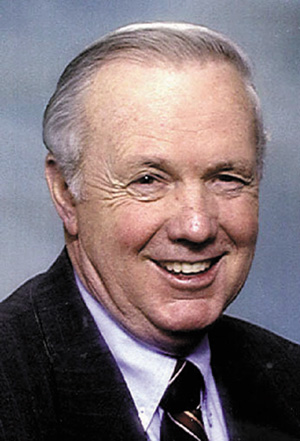No. 712 - THE SMARTEST WAY TO SAVE
No. 712
Jim Davidson -- NEWSPAPER COLUMN
THE SMARTEST WAY TO SAVE
The late T.T. Munger (1830-1910) had this to say about saving, “The habit of saving is itself an education; it fosters every virtue, teaches self-denial, cultivates the sense of order, trains to forethought, and so broadens the mind.”
The other day I was talking with a young man who had been out of work for about three weeks and didn’t have a penny to his name. He said, “I have never been without a job for this long. I had some money saved but now it’s all gone.” My comment to this young man was, “You should have had at least enough money saved to last a year and not just three weeks.” His situation is what we call hand-to-mouth and he has plenty of company, as there are millions of people all across our nation in the same boat.
The sad thing for this young man is that before he can start to save money again he must first dig out of the hole he has placed himself in. We all want financial security, but in many cases have never been taught how to achieve it. Now I am a big believer that here in our country we can achieve and have most anything we really want, if we are willing to pay the price to achieve it, including financial security. Over the past few years we have seen massive layoffs due to our economy, and these are the people I really feel for because, in most cases, they also have a family to support.
The other day I responded to one of the many offers I receive for a free book, and this one turned out to be a fantastic resource for anyone to achieve financial security if they will just read it and apply even a small percentage of the hundreds of tips it provides. The title is “The Smartest Way to Save: Why You Can’t Hang on to Money and What to Do About It” by Samuel K. Freshman and Heidi Clingen. Both of the authors are eminently qualified to guide one through the maze of information that is out there.
Sam is a real estate developer, attorney, banker, and professor. He holds both an undergraduate degree from Stanford University and a law degree from Stanford Law School. Heidi is a journalist, editor and writer for the past 25 years – she has held positions at Apparel News Group and The Wall Street Journal where she received a Dow Jones Foundation fellowship. This book is simple and easy to read. I would recommend it to anyone who is serious about getting out of debt, staying out and getting on the path that leads to financial independence.
There are not only hundreds of tips in this book but it is chock full of e-mail addresses and other resources that provide additional information and services that one would need on their journey, and they are all right there at your fingertips. Obviously, in this column I can’t tell you everything that is in this book, but I would like to take just one chapter. Chapter 3 is titled “Get Free from Debt,” and I’ll give you the headings for the various tips it contains.
Here they are: Cleanse yourself from toxic debt; protect your credit rating; find a role model; ask someone to hold you accountable; the game of not spending money; become more introspective; make your financial life more manageable; understand the money machine (ATM); avoid debit cards; learn about “positive debt”; control your money consumption; keep a small wallet; get on a cash-and-carry basis; control your thinking; control your saving; and visualize your future.
Now that is just the offerings from one of 23 chapters in this book. You cannot read it all the way through without getting excited about your financial future. Visit Amazon.com.
---
(EDITOR'S NOTE: Jim Davidson is a public speaker and syndicated columnist. You may contact him at 2 Bentley Drive, Conway, AR 72034. To begin a bookcase literacy project visit www.bookcaseforeverychild.com. You won’t go wrong helping a needy child.)
